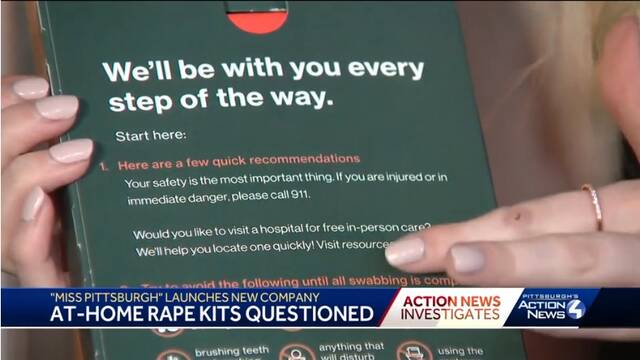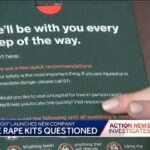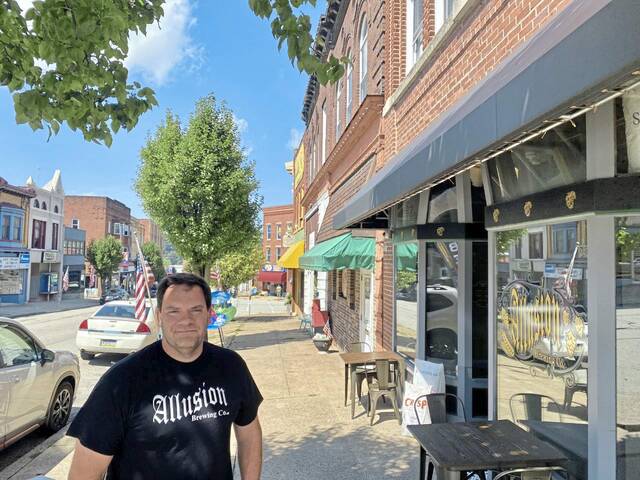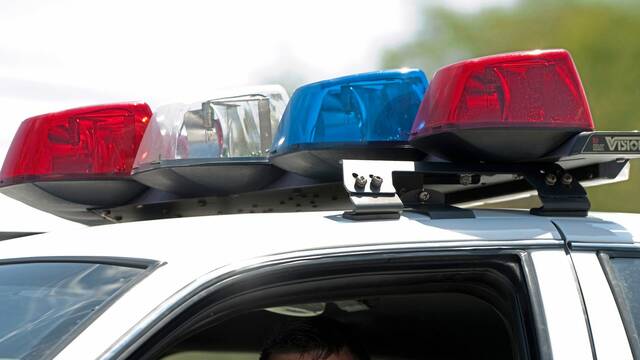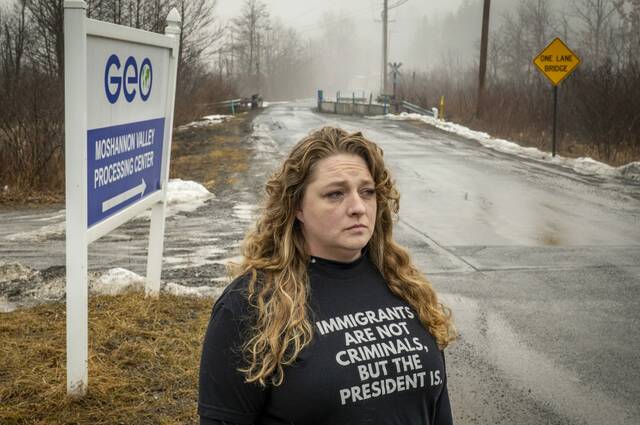A Pittsburgh company and the Pennsylvania Attorney General’s Office filed dueling lawsuits this week over the marketing and sale of an at-home rape kit for survivors of sexual assault.
Leda Health Corp., based in Lawrenceville, and its co-founder and CEO Madison Campbell, filed a lawsuit in federal court Monday alleging coercion and retaliation against state Attorney General Michelle Henry, as well as New York Attorney General Letitia James. It claims the AG’s offices are interfering with the company’s right to aid survivors of sexual assault.
But, on Tuesday, Henry filed her own lawsuit in Allegheny County against Leda and Campbell, accusing them of violating Pennsylvania’s Unfair Trade Practices and Consumer Protection Law by making false claims in the marketing of their Early Evidence Kit.
The company, originally formed in New York under the name Me Too Kits, moved to Pennsylvania in 2023. Its mission, according to its website, is to help survivors of sexual assault, particularly those who might fear going to law enforcement or a hospital.
The Early Evidence Kits allow survivors of sexual assault to self-collect and store evidence when they cannot obtain a traditional sexual assault forensic exam — or choose not to.
The kits include diagnostic swabs, plastic storage bags, sterile water, tamper-evident tape, an intake form and a ballpoint pen and prepaid FedEx shipping bag to send the kit to the lab.
If the customer chooses to send the kit to the lab — instead of turning it over to law enforcement — the lab will send a summary report, as well as a full chain-of-custody document.
“None of this is illegal,” Leda’s lawsuit against the AGs claims. “Defendants do not contend otherwise. Rather, defendants are upset about what Leda Health tells survivors they can do with perfectly legal items.
“The core complaint from both defendants concerns the message Leda Health and Ms. Campbell are communicating to sexual assault survivors.”
But, in the attorney general’s lawsuit, Henry argues Leda’s products and services are not equivalent to what a hospital would provide for free to sexual assault survivors.
It cites Pennsylvania’s Sexual Assault Testing and Collection Act, which sets standards for how evidence is gathered and tested, as well as regulations for a variety of medical and trauma services to be offered to victims.
The collection and testing of evidence for sexual assault survivors is free under state law.
The attorney general’s lawsuit accuses Leda Health of misleading customers by offering kits for sale that don’t meet state requirements, have not been tested by the state Department of Health and do not meet chain of custody requirements.
The attorney general’s complaint also said the evidence collected by Leda’s kits would not meet state minimum standards to be admitted to court and that the company’s disclaimer on that topic is insufficient.
“The disclaimer that Leda Health does not ‘guarantee’ admissibility does not inform consumers that the Early Evidence Kits have never been admitted by a court as evidence in a sexual assault case,” the lawsuit said.
The Pennsylvania lawsuit also makes claims against the company for its marketing of Plan B emergency contraception and sexually transmitted infection testing, which it also offers. Leda “does not make clear” how it would ensure timely delivery of the contraception, given that it must be administered within 72 hours of a sexual assault to be effective, the complaint said.
According to the attorney general’s lawsuit, the company has received cease-and-desist letters from Pennsylvania, New York and Michigan and has been banned from selling its evidence-collection kits in Maryland and Washington.
Leda said it does not sell kits directly to individuals. It has been awarded contracts with Air Force Work Project and Delta Gamma Fraternity and is working with organizations in Ukraine and the Middle East to provide kits and resources there.
Leda’s lawsuit
In the lawsuit Leda filed Monday, it accuses Pennsylvania and New York of violating the company’s right to free speech.
“Defendants disagree with Leda Health and do not believe survivors have the right to hear its message,” the complaint said.
Campbell, the lawsuit said, is a survivor of sexual assault who advocates for improvements in how the government provides services to victims.
“In the defendants’ view, Leda Health and Ms. Campbell cannot tell women who experience sexual assault about alternatives to government-endorsed services (such as traditional forensic exams conducted in hospitals or at law enforcement facilities) because it might discourage victims from seeking these services. Doing so is a ‘deceptive practice,’ the pair claim, even when all the information that Leda Health provides is true,” the company’s lawsuit said.
Leda’s complaint said the company consulted with health care professionals and advocates in developing its product and that the kits ought to be viewed as a supplemental tool.
As part of the kit, Leda tells customers the product is not a substitute for seeking in-person care and encourages survivors to get help, the company said in its lawsuit.
Regarding Pennsylvania’s testing and evidence collection act, Leda’s lawsuit said it does not apply to the company.
“The act sets standards that apply ‘to all sexual assault evidence obtained by a health care facility,’ ” the lawsuit said. “Leda Health is not a ‘health care facility.’ ”
Further, the complaint said, there is no “per se” bar to admitting self-collected DNA evidence.
“The chief complaints motivating defendants’ threat is their purported concern that plaintiffs are deceiving consumers about the admissibility of evidence obtained using (early evidence kits). But as their letters make clear, this position is really an effort to censor what survivors can hear about the admissibility of evidence they might collect on their own.”
Leda’s lawsuit said there is no law in Pennsylvania or New York prohibiting the self-collection of evidence — even for sexual assault.
“So long as evidence meets the requirements for general admissibility, such as relevance and authenticity, a court may admit it.”
DNA collection
Bruce Antkowiak, a former prosecutor who teaches law at Saint Vincent College, said collecting DNA evidence privately does not meet the established scientific protocols developed over decades to help protect victims’ and defendants’ rights in court.
“Where it’s a private company, it becomes far more problematic,” he said.
If a defendant challenges the evidence, and it is not admitted into court, that can be a devastating blow to the prosecution and victim.
“You’re talking about a population that includes very vulnerable people — people who have suffered severe trauma,” Antkowiak said. “As a prosecutor, you want it to be as fortified as you can.”



